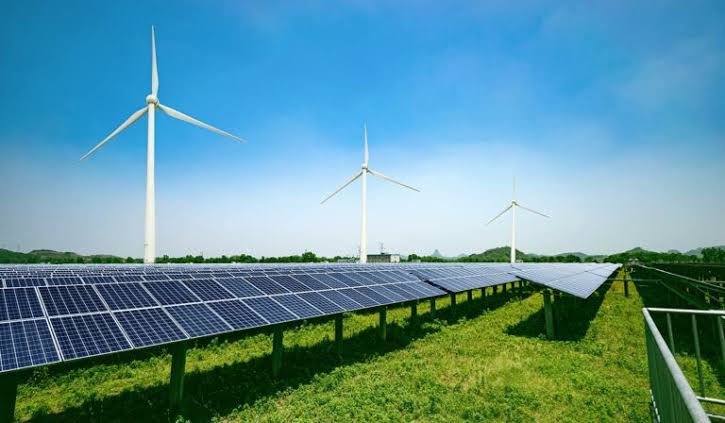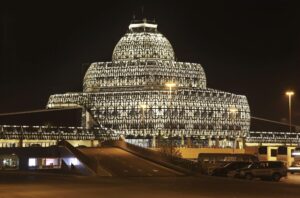Azerbaijan Strides Towards Increasing its Renewable Energy Capacity

Azerbaijan set target to increase the share of renewable energy sources in total installed capacity of electricity to 30% by 2030, as well as to reduce the Green House Gas Emissions by 35%.
A clean environment and a growth of green energy is one of the top priority of Azerbaijan
The total renewable energy potential of Azerbaijan is estimated as 27 GW including solar and wind potential. It is envisaged that through foreign investments in solar and wind projects will unlock the huge renewable energy potential.
Azerbaijan’s energy sector reliance on fossil fuels and Challenges to Shift from Traditional to Renewable Energy Resources.
Azerbaijan, traditionally known for its vast oil and gas resources with significant reliance on fossil fuels, particularly oil and natural gas, which dominate the country’s energy landscape and economy. On the other hand, Azerbaijan aims to become a major energy supplier to Europe. 45 Bn $ deal has been signed in the past years for that purpose. Therefore, shifting from traditional resources to renewable is a challenging task.
The first challenge is the lack of infrastructure at such large scale. Azerbaijan needs to develop an infrastructure to shift its energy sector by 2030.
The second important challenge is the regulatory framework. In recent years, Azerbaijan has also witnessed the issue in natural Gas Distribution System due to rising domestic consumption. In such scenario, meet the future needs of the people without compromising their present is a big challenge ahead.
The third challenge is in term of economy. Azerbaijan needs huge foreign investment for the shift from traditional to renewable energy resources. One hand Azerbaijan is going to become the largest energy provider to Europe and on the other hand they are committed to shift towards renewable resources is a challenging task in term of economy.
Government Plans and Initiatives to build Renewable Energy Capacity
Government of Azerbaijan adopted a diversified and balanced portfolio of hydrocarbon as well as low carbon businesses. For that purpose following policies and initiatives pipelined by the Government.
First is Strategic Road Map for the Development of Utilities (Electricity and Thermal Energy, Water and Gas): This roadmap outlines the country’s goals for enhancing energy efficiency and expanding the use of renewable energy sources by 2025.
Second is the State Program on the Use of Alternative and Renewable Energy Sources: Launched in 2004, this program aims to increase the share of renewables in the energy mix and reduce dependence on fossil fuels.
Third is the legislation and framework known as The Energy Efficiency Law. This draft law, currently in development, is expected to promote energy conservation and the use of renewable energy sources across various sectors.
Fourth important initiative of government is Garadagh Solar Power Plant. This is a significant solar power project with a capacity of 230 MW, developed with the involvement of international investors and expected to be operational soon.
Fifth important step of renewable enhancing capacity is Wind Farm Projects. There are several wind power projects in development, particularly in the Khizi and Absheron regions, aimed at harnessing the country’s wind energy potential.
Last but not least, the Hydropower Plants is a big step towards building renewable energy capacity. Various small and medium-sized hydropower plants are either operational or in the planning stages, contributing to the country’s renewable energy capacity.
Azerbaijan’s commitment to renewable energy is evident from its strategic plans and ongoing projects. The country aims to significantly increase the share of renewables in its energy mix over the next decade, contributing to global efforts to combat climate change and ensuring sustainable energy for future generations.


